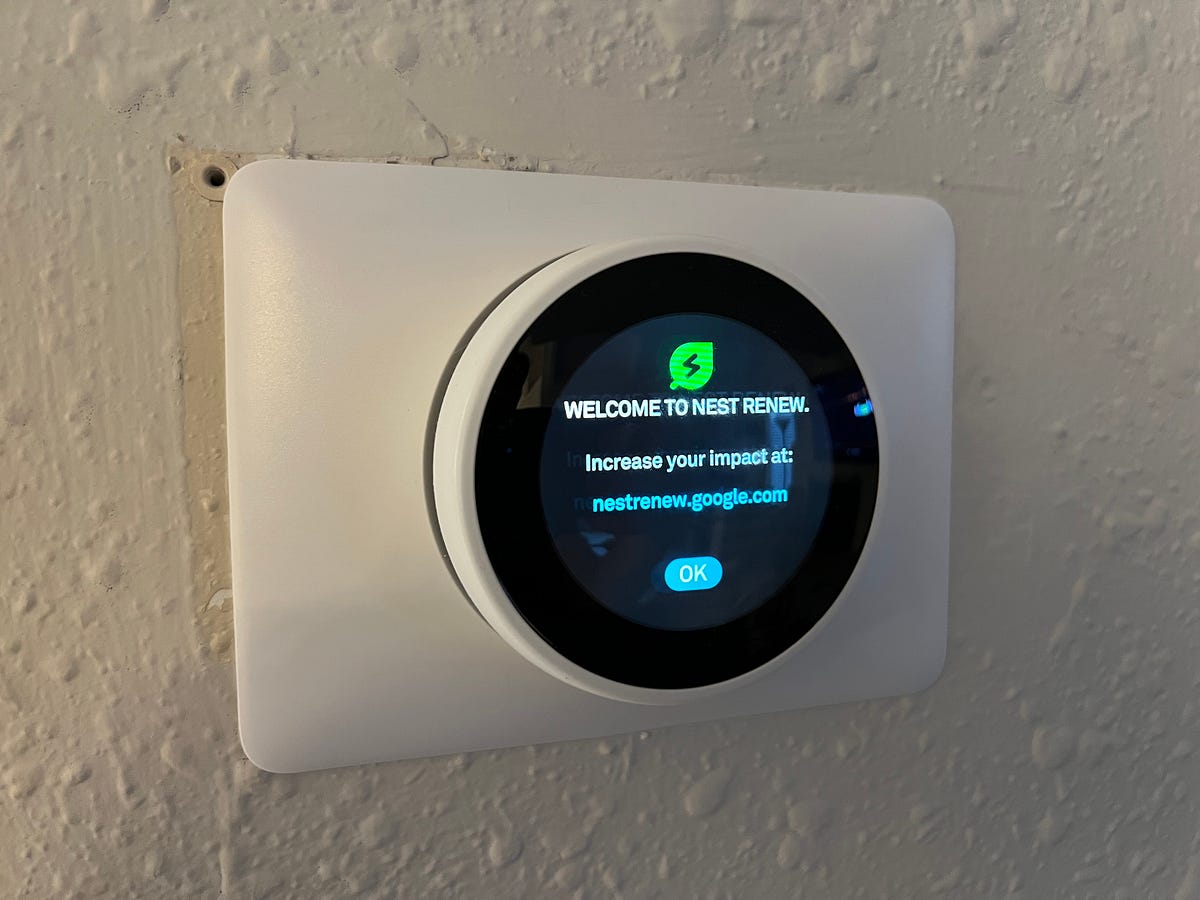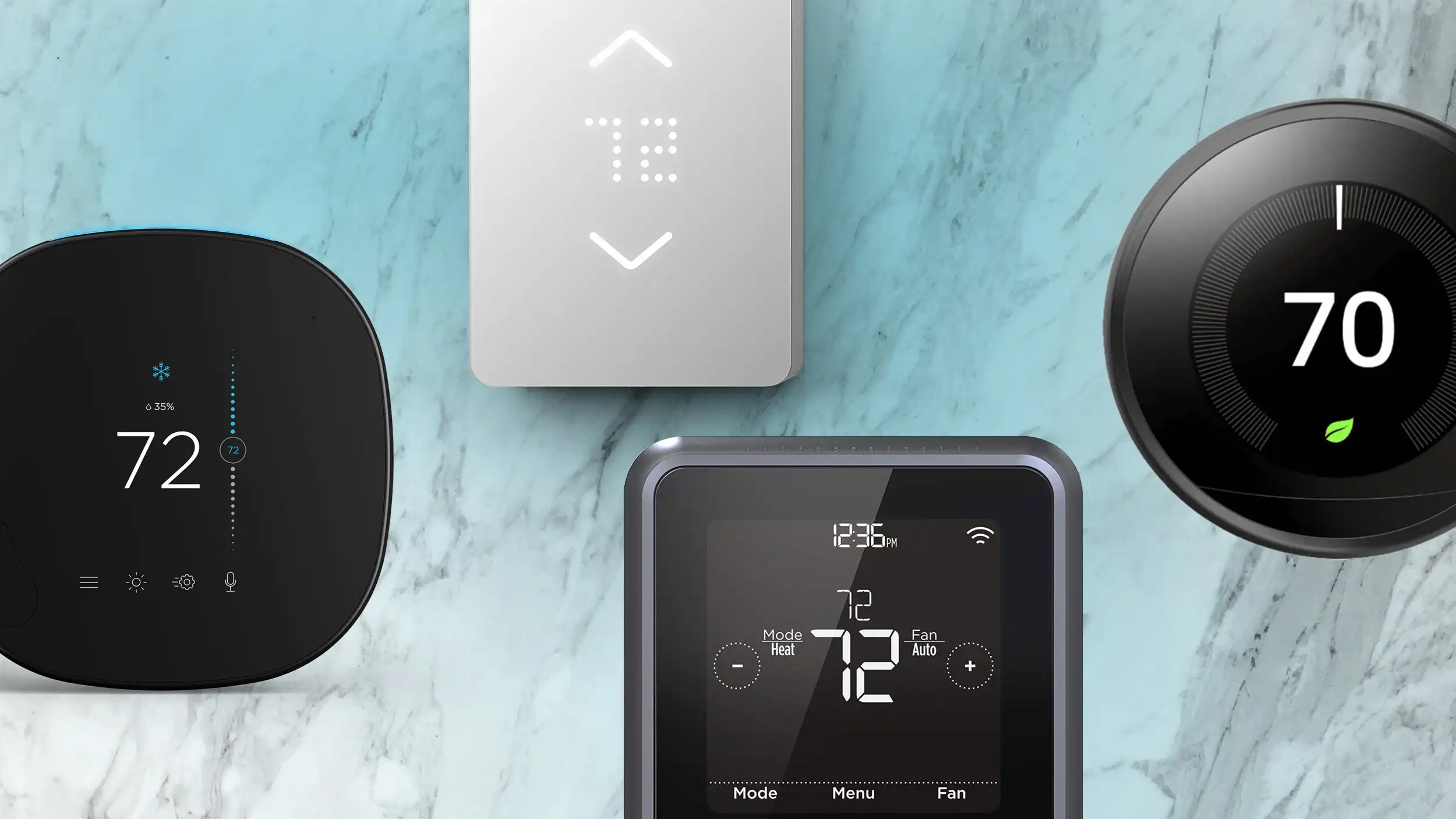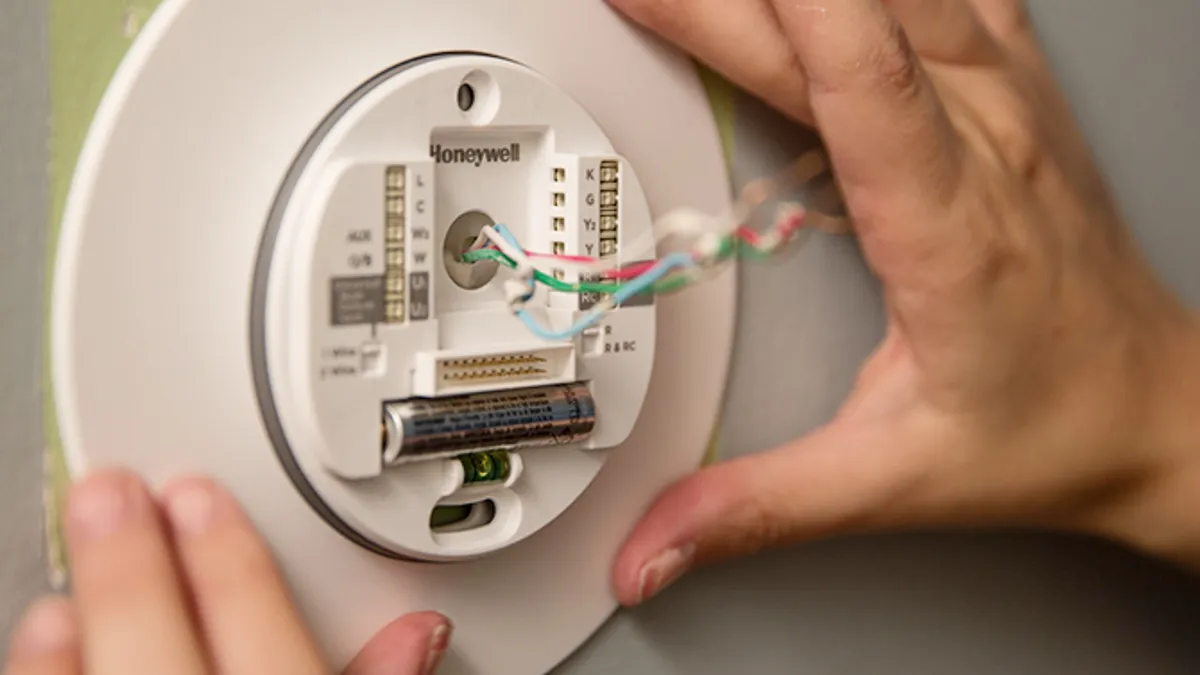Why Does My Utility Want To Give Me A Smart Thermostat?
Introduction
Have you ever received an offer from your utility company to install a smart thermostat in your home? You might wonder why they are so eager to provide you with this cutting-edge technology. The answer lies in the numerous benefits that smart thermostats offer, not just to homeowners but also to utility companies. In this article, we will explore the reasons behind your utility's initiative to promote smart thermostats and the advantages they bring to both you and the energy provider.
Smart thermostats are not just about convenience; they represent a significant leap forward in energy management and efficiency. By understanding the motivations behind your utility's offer, you can gain insight into the broader impact of smart thermostats on energy consumption, cost savings, and environmental sustainability. Let's delve into the world of smart thermostats to uncover the compelling reasons why your utility is so enthusiastic about providing you with this innovative technology.
What is a Smart Thermostat?
A smart thermostat is a technologically advanced device that allows you to control the heating, ventilation, and air conditioning (HVAC) system in your home remotely. Unlike traditional thermostats, which require manual adjustment, smart thermostats can be programmed and managed using a smartphone, tablet, or computer. They utilize sensors, Wi-Fi connectivity, and intelligent algorithms to learn your heating and cooling preferences and create automated schedules to optimize energy usage.
These devices offer a range of features, including:
- Remote Access: With a smart thermostat, you can adjust the temperature of your home from anywhere using a dedicated app, providing convenience and flexibility.
- Learns Your Behavior: Smart thermostats have the ability to learn your daily routines and adjust the temperature settings accordingly, providing personalized comfort while maximizing energy efficiency.
- Energy Usage Insights: They offer insights into your energy consumption patterns, allowing you to make informed decisions to reduce energy waste and save on utility bills.
- Integration with Smart Home Systems: Many smart thermostats are compatible with smart home ecosystems, enabling seamless integration with other connected devices and systems.
- Weather Adaptation: Some smart thermostats can access weather forecasts and adjust indoor temperatures to optimize comfort and energy savings based on external conditions.
Overall, a smart thermostat empowers homeowners to have greater control over their home’s climate, leading to enhanced comfort, energy efficiency, and cost savings.
How Does a Smart Thermostat Benefit You?
Integrating a smart thermostat into your home brings forth a multitude of advantages that cater to your comfort, convenience, and financial well-being. Here are some ways in which a smart thermostat benefits you:
- Enhanced Comfort: Smart thermostats enable you to maintain optimal temperatures in your home, ensuring comfort when you’re present and energy savings when you’re away.
- Energy Savings: By automatically adjusting temperature settings based on your habits and preferences, smart thermostats help reduce energy waste, leading to lower utility bills without compromising comfort.
- Remote Accessibility: With the ability to control your HVAC system from anywhere, you can ensure that your home is at the ideal temperature upon your arrival, eliminating the need to return to an uncomfortably hot or cold environment.
- Insightful Energy Usage Data: Smart thermostats provide valuable insights into your energy consumption patterns, empowering you to make informed decisions about optimizing energy usage and identifying potential areas for improvement.
- Environmental Impact: By minimizing energy waste and reducing overall energy consumption, smart thermostats contribute to environmental sustainability by lowering your carbon footprint.
- Convenience and Automation: The automated scheduling and adaptive features of smart thermostats eliminate the need for manual adjustments, simplifying your daily routine and enhancing overall convenience.
Ultimately, a smart thermostat puts you in the driver’s seat when it comes to managing your home’s climate and energy usage, offering a seamless blend of comfort, control, and cost savings.
How Does a Smart Thermostat Benefit the Utility Company?
Smart thermostats offer not only individual benefits to homeowners but also significant advantages for utility companies. By promoting the adoption of smart thermostats, utility providers can leverage this technology to enhance grid management, reduce peak energy demand, and improve overall operational efficiency. Here’s how smart thermostats benefit the utility company:
- Peak Load Management: Smart thermostats enable utilities to implement demand response programs, allowing them to remotely adjust customers’ thermostat settings during peak demand periods. This helps alleviate strain on the grid and reduces the likelihood of blackouts or brownouts.
- Energy Conservation: By encouraging energy-efficient practices among consumers, smart thermostats contribute to overall energy conservation, aligning with the utility company’s sustainability and environmental stewardship goals.
- Data Insights: Smart thermostats provide utilities with valuable data on customers’ energy consumption patterns, enabling them to gain insights into demand trends, identify areas for energy efficiency programs, and optimize resource allocation.
- Grid Stability and Resilience: The ability to manage and forecast energy demand more effectively through smart thermostat data helps utility companies maintain grid stability and resilience, particularly during extreme weather events or unforeseen circumstances.
- Cost Savings and Operational Efficiency: By reducing peak demand and improving overall energy management, utility companies can achieve cost savings in grid operations and maintenance, ultimately leading to greater operational efficiency.
- Customer Engagement: Offering smart thermostat programs allows utility companies to engage with customers on energy-saving initiatives, fostering a positive relationship and enhancing customer satisfaction.
Overall, the widespread adoption of smart thermostats presents utility companies with an opportunity to modernize grid operations, enhance energy management, and promote a more sustainable and resilient energy infrastructure.
Incentives and Rebates for Installing a Smart Thermostat
Many utility companies and government agencies offer incentives and rebates to encourage homeowners to install smart thermostats. These incentives are designed to offset the initial cost of the device and promote energy efficiency. By taking advantage of these programs, homeowners can enjoy financial benefits while contributing to energy conservation efforts. Here are some common incentives and rebates for installing a smart thermostat:
- Utility Rebate Programs: Several utility companies provide rebates to customers who purchase and install qualifying smart thermostats. These rebates can significantly reduce the out-of-pocket cost of the device, making it more accessible to a wider range of homeowners.
- Government Energy Efficiency Programs: Government agencies at the federal, state, and local levels often offer energy efficiency programs that include incentives for smart thermostat installation. These programs aim to promote sustainable energy practices and reduce overall energy consumption.
- Energy Savings Incentives: Some utility companies offer incentives based on the energy savings achieved through the use of a smart thermostat. By demonstrating reduced energy usage, homeowners may be eligible for additional financial rewards or credits on their utility bills.
- Manufacturer Rebates: Smart thermostat manufacturers may offer rebates or promotional discounts to incentivize consumers to purchase their products. These incentives can further lower the upfront cost of acquiring a smart thermostat.
- Programmable Thermostat Initiatives: In some regions, utility companies promote the transition from traditional thermostats to programmable or smart thermostats by offering exclusive incentives and educational resources to encourage adoption.
These incentives and rebates not only make smart thermostats more affordable for homeowners but also align with broader energy efficiency and sustainability goals. By participating in these programs, homeowners can take proactive steps to reduce their energy consumption, lower utility bills, and contribute to a more environmentally conscious approach to home energy management.
How a Smart Thermostat Helps with Energy Efficiency
A smart thermostat serves as a pivotal tool in enhancing energy efficiency within homes, offering a range of features that optimize heating and cooling systems while minimizing energy waste. The following aspects illustrate how a smart thermostat contributes to energy efficiency:
- Automated Scheduling: Smart thermostats allow users to create customized heating and cooling schedules, ensuring that energy is not wasted on heating or cooling an unoccupied home.
- Adaptive Learning: These devices utilize advanced algorithms to learn the household’s temperature preferences and daily routines, automatically adjusting settings to conserve energy without sacrificing comfort.
- Remote Monitoring and Control: With remote access capabilities, homeowners can adjust temperature settings from anywhere, enabling them to optimize energy usage based on their schedules and unexpected changes in plans.
- Energy Usage Insights: Smart thermostats provide detailed energy consumption data, empowering users to make informed decisions about energy-saving adjustments and identify opportunities for further efficiency improvements.
- Integration with Smart Home Systems: Integration with other smart home devices allows for coordinated energy-saving actions, such as adjusting lighting and HVAC settings simultaneously to minimize energy consumption.
- Weather-Based Optimization: Some smart thermostats leverage weather forecasts to adjust temperature settings, optimizing energy usage based on external conditions and reducing unnecessary heating or cooling.
By harnessing these capabilities, a smart thermostat plays a vital role in promoting energy efficiency within households, leading to reduced energy consumption, lower utility bills, and a more sustainable approach to home climate control.
Conclusion
Smart thermostats represent a transformative solution that benefits both homeowners and utility companies, offering a myriad of advantages that extend beyond mere temperature control. For homeowners, these innovative devices provide enhanced comfort, energy savings, and the convenience of remote accessibility. By leveraging advanced features such as automated scheduling, adaptive learning, and energy usage insights, smart thermostats empower individuals to manage their home’s climate efficiently while reducing their environmental impact.
Furthermore, the widespread adoption of smart thermostats contributes to the collective effort to enhance energy efficiency and sustainability. Utility companies stand to gain substantial benefits from promoting the use of smart thermostats, including peak load management, grid stability, and operational efficiency. These devices enable utilities to engage customers in energy-saving initiatives, gather valuable data on energy consumption patterns, and implement demand response programs to optimize energy usage during peak demand periods.
Moreover, the availability of incentives and rebates for smart thermostat installation further incentivizes homeowners to embrace this energy-efficient technology, fostering a culture of conscientious energy consumption and environmental responsibility. By participating in utility rebate programs and government energy efficiency initiatives, homeowners can make a tangible impact on their energy usage and contribute to broader sustainability goals.
Ultimately, the integration of smart thermostats into residential properties represents a significant step toward a more energy-conscious and environmentally sustainable future. As technology continues to evolve, smart thermostats serve as a prime example of how innovation can drive positive change in the way we manage energy resources and contribute to a more efficient and resilient energy infrastructure.
Embracing the benefits of smart thermostats not only enhances individual comfort and cost savings but also plays a crucial role in shaping a more sustainable and environmentally responsible approach to energy management for the benefit of present and future generations.

























